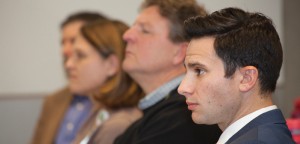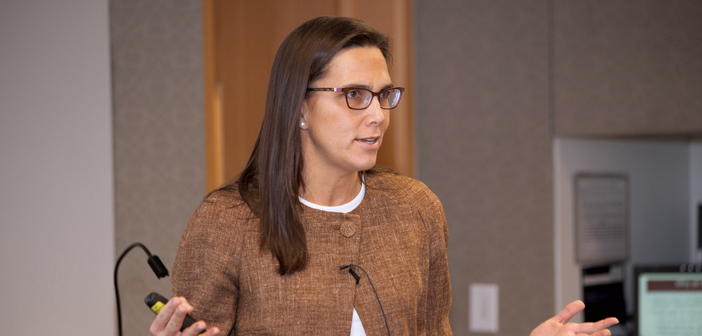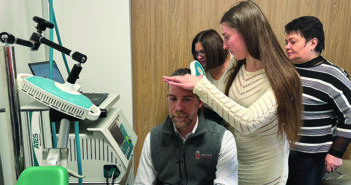A Medical School program helps faculty improve their teaching.
For medical educators, teaching is a skill that needs to be honed and developed just like clinical practice. Emily Green, MA, oversees the Program in Educational Faculty Development at Alpert Medical School, which began in August 2012. “The ultimate goal [of the program]is improvement in teaching to improve the experience of our students and residents,” she says. But it’s also about building a community of educators, and showing the faculty that their teaching is appreciated and supported. “People who attend our programs have said that sometimes it’s just nice for doctors to have an opportunity to talk through issues and share best practices,” Green says.
By attending a sequence of programs over a three-year period, faculty are able to earn certificates of Participation or of Advanced Medical Education Training. Most of the workshops, Green says, are eligible for continuing medical education credits as well.
The workshops themselves vary, from standard seminars to MedEd Talks, which adopt the TED Talk style to deliver short, informative lectures on a wide variety of topics in medical education. For example, the second annual MedEd Talks, in November, featured 10-minute presentations on subjects as varied as training students to be leaders in medicine to the use of museum visits in the curriculum.

The workshops themselves vary, from
standard seminars to MedEd Talks, which adopt the TED Talk style to deliver short, informative lectures on a wide variety of topics in medical education.
The program is also a way for the Medical School to show how much the teaching contributions of faculty are valued, says Michele G. Cyr, MD, MACP, associate dean of medicine for faculty affairs. “All but one of our faculty tracks require excellence in teaching for promotion, and participation in these seminars demonstrates a faculty member’s commitment to their teaching,” she says. There’s plenty of expertise to share, as well. “Many of the course instructors have been doing workshops at national meetings. This program allows us all to benefit right here at home.”
Green’s office also provides a talk feedback service. For example, they might review a faculty member’s presentation for a national meeting and provide tips for improving content and delivery. Next on her office’s agenda is the creation of a teaching academy that would broaden the services offered and reach more teachers.
“People who touch learners can be really far flung, especially as we cross into new clinical settings,” Green says. “We want to gather under an umbrella and say we value what you do and want you to do it well,




